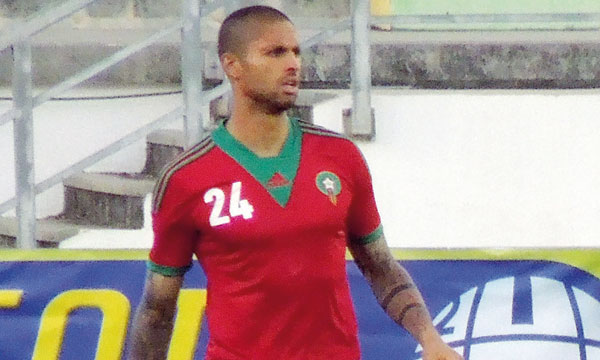Assou-Ekotto: “No Way I Was Going to Play for That Kind of Country”
Cameroon defender Benoît Assou-Ekotto has once again found himself at the centre of controversy, not only for his actions on the pitch but also for his outspoken views off it. The left-back, who made headlines for a heated altercation with teammate Benjamin Moukandjo during Cameroon’s 4-0 World Cup defeat to Croatia, has shed light on why he chose to represent the Indomitable Lions rather than the French national team.
Born in France and eligible to play for Les Bleus, Assou-Ekotto opted instead to represent Cameroon, the country of his parents. Speaking to the BBC in a past interview, he explained that his decision was deeply personal and rooted in his views on identity and belonging.
“When the national team gets bad results, they start saying it’s because there are too many black people in the team, too many Muslims and that kind of thing,” he told the BBC. “I don’t like that. There was no way I was going to play for that kind of country.”
Assou-Ekotto, who began his professional career at RC Lens, left France early in his career and has spent most of his footballing life in England, notably with Tottenham Hotspur and Queens Park Rangers. His journey and remarks reflect a complex relationship with his country of birth, which he feels has not always embraced players from diverse backgrounds.
The defender has never been shy about expressing his views, often challenging conventional expectations of footballers and speaking candidly about his motivations. While his on-field behaviour has drawn criticism — particularly the headbutt incident against Moukandjo, which further underscored the turmoil within the Cameroonian camp — his comments on national identity have sparked renewed debate.
Cameroon’s World Cup campaign has been marred by internal tensions, both on and off the pitch. The squad has struggled to show cohesion, and questions have been raised about discipline, leadership, and commitment. Assou-Ekotto’s altercation with Moukandjo came at a low point in the team’s 2014 World Cup run, which has seen them eliminated early from the group stage.
As Cameroon look to regroup and rebuild, the spotlight remains firmly on players like Assou-Ekotto — both for their influence on the pitch and for the broader issues they raise off it. His decision to reject France in favour of Cameroon was a statement of identity, but his actions in Brazil have raised serious concerns about unity and professionalism within the national squad.











